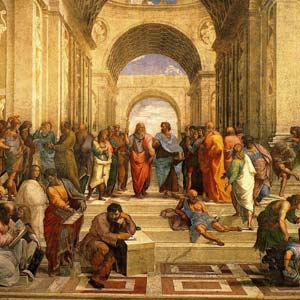
C. S. Peirce and the Implications of Pragmatism
An examination of the basic assumptions of pragmatism, the influential school of epistemology founded by Charles Sanders Peirce. Read Article

An examination of the basic assumptions of pragmatism, the influential school of epistemology founded by Charles Sanders Peirce. Read Article

A general overview of Wittgenstein's epistemology, how it denies objective meaning outside of language games, and the consequences thereof: relativism in postmodern philosophy. Read Article

Although the term “idealism” is used in many senses to describe various trends in epistemology, each case is most illuminatingly understood in its historical context. To understand Berkeley's idealism, we must understand it as a reaction to Locke. Read Article

The way we know the world determines to a large extent our ability to understand what a thing is, such as a tree or an animal. This in turn forms our understanding of the intelligibility in the world itself Read Article

In his Leviathan, Thomas Hobbes outlines the character of speech, and words which are the components of speech. His assumption that words only nominally represent particulars affects how he understands propositional logic. Read Article

The division of the sciences, especially of the liberal arts from the other sciences, is propaedeutic for knowing and understanding the world around us. Read Article

During the Middle Ages, the rediscovery of Aristotelianism brought about the question of what the relationship between each science was. Is there a natural hierarchy? Can any science be understood independently of the other sciences? Read Article

The need to dominate nature is a corruption of the desire to know. It stems from the desire to see the effects of all our knowledge in action, whether harmful or beneficial. Read Article

A comparison is made between the Thomistic and the Neo-Platonic notion of signs, and how such signs relate to our knowledge of the world. Read Article

Hume attempts to deconstruct epistemology through a criticism of the necessity of cause and effect. Instead, he spurs the investigation of nature through statistics and probability. Read Article

Kant gives a revised definition of truth that contains his own vocabulary and explores the possibility of general criterion of truth. Read Article

A reflection on Plotinus' treatment of the union of Intellect and the intelligibles and a comparison of his treatment with the epistemological. Read Article

Aristotle explains in his Physics that good philosophy begins with the observation of physical objects, and ends with relating those objects to thought. Read Article